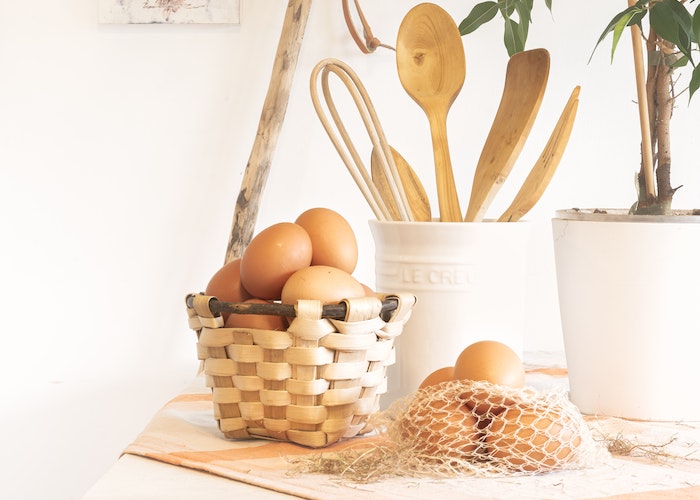6 Baking Tools Under $25 That Are Perfect For People Who Can’t Bake
As a baker, I can say this: Just like in life, baking is best when it’s simple and sweet.
Picture this: You’re scrolling through Pinterest and spot an adorable cupcake decorated to look like a succulent. You’ve been wanting to explore baking and you love a good succulent plant. Feels like fate, right? But then you click on the link and discover there’s a long list of things you’re going to need–not even just ingredients, but tools, some of which you’ve never heard of and don’t know how to use. For a hobby you can do home alone in your pajamas, it sure seems like baking needs a lot of stuff.
As a professional pastry chef, even I’ve had experiences like this. I even once seriously debated buying a kitchen torch last week so I could get just the right toast on some marshmallows for an ice cream recipe (so yeah, I’m in deep.) Walk into any kitchen supply store and you’ll see that your kitchen is not immune to our consumer culture. There’s always some company, somewhere, trying to convince you that you can’t really call yourself a baker until you have [insert this week’s trendy kitchen gadget here].
But I have good news! Baking has simple, rustic roots in human history. While our ancestors weren’t exactly piping out succulent cupcakes in their spare time, you also do not need a laundry list of pricey, single-use gadgets to fully experience the fun, sense of accomplishment and sheer tastiness of a baking hobby. These tools are all you really need to start baking. Plus everything is under $25:
Silicone Spatula — $14.95
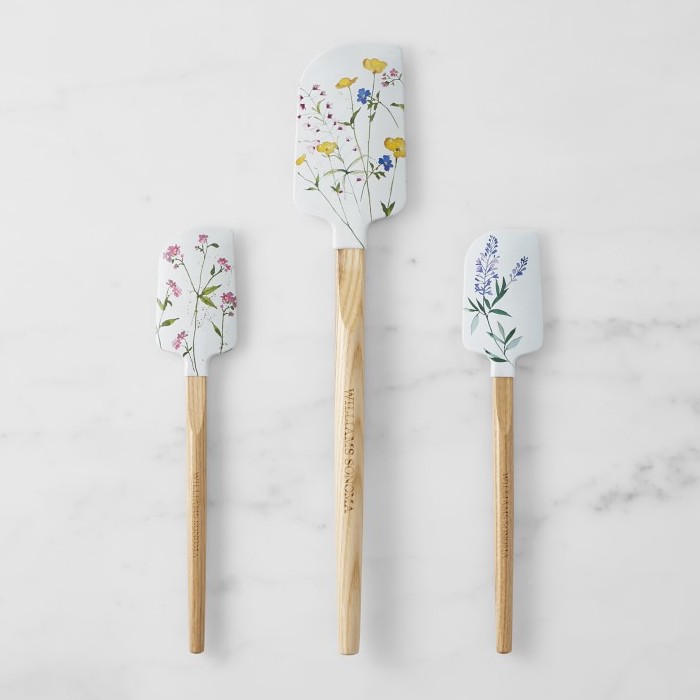
Yes, I know your grandmother probably had a single wooden spoon that she made every single cookie, casserole, and roast chicken with. In my house, that spoon had literally been dropped into flames and we still grabbed its blackened handle for just about everything. I’m here to tell you that it’s time to retire your hand-me-down wooden spoon and buy yourself a silicone spatula. The beauty of silicone spatulas are their flexibility; they can bend to fit into every nook and cranny of a bowl. That means you’re not leaving any brownie batter behind when you’re emptying the bowl into your baking dish. It may be difficult to imagine when you’re a beginner, but someday you will be frantically stirring a custard on the stove, and that silicone spatula is the only thing saving you from custard burning into the corners of your pan. Silicone spatulas are also easier to clean than wooden utensils and come in adorable patterns to fit every kitchen aesthetic.
Instant Read Thermometer — $19.99
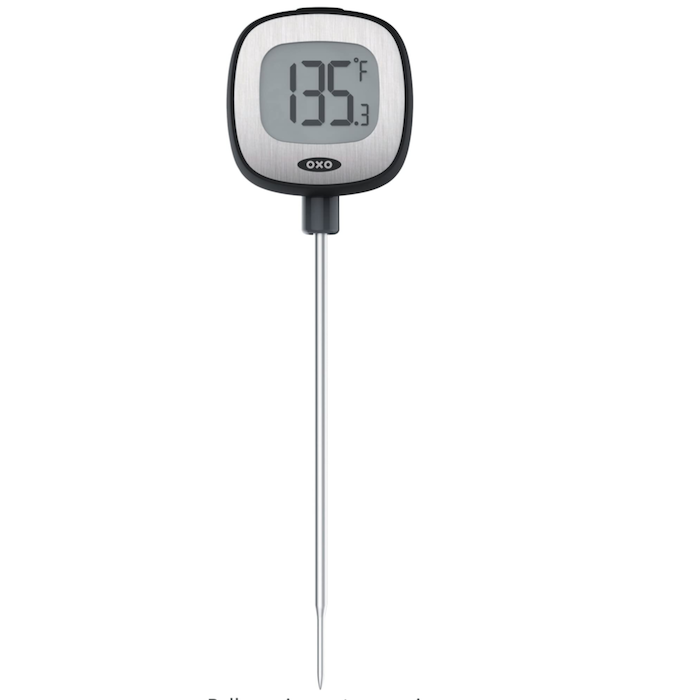
I am the first to admit that cooking with a thermometer isn’t exactly ‘sexy.’ There’s a reason you don’t see chefs on TV whipping out their thermometers to judge doneness — it’s far more mysterious and impressive to see a chef simply know their steak or cake is cooked (or baked) just right. But in pastry school, our uniforms had pockets on the sleeve for our thermometers — that’s how often we used them! If you’re new to baking, a reliable instant-read thermometer will be your best friend. That banana bread might appear perfect and golden brown, it might even spring back lightly when pressed, but it still might be raw on the inside. To use your thermometer to check, insert the end into the thickest part of the loaf. 200 degrees F is the magic number for most baked goods. If the temperature comes in higher than 210 degrees F, you risk over-baking and drying out your hard work.
Lidded Mixing Bowl — $19.95
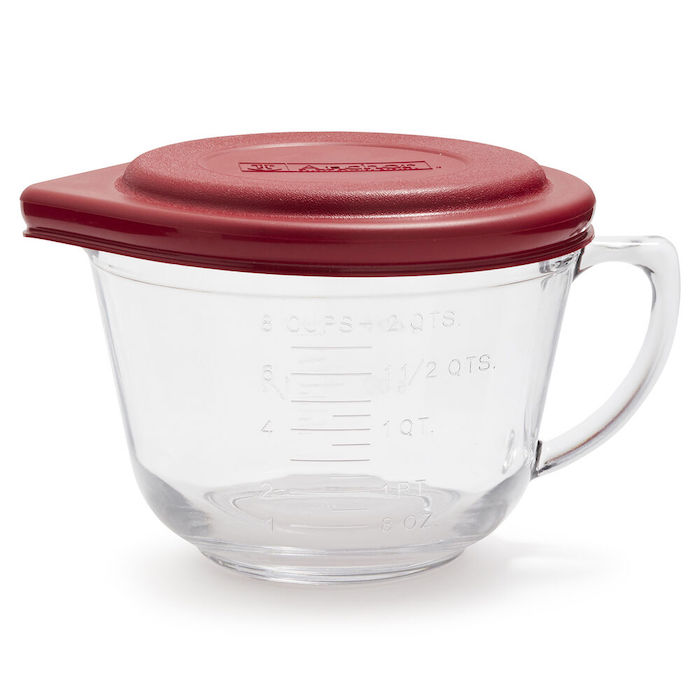
A mixing bowl (or a couple!) is non-negotiable for new bakers, but pro tip: get one with a corresponding lid. A lot of recipes call for chilling batters and doughs in the fridge before moving on to the next step (and even if it doesn’t, sometimes you get tired of scooping cookies and need a nap, you know?) Cover the bowl, first, before putting it in the fridge! Unless you want your chocolate chip cookie dough absorbing the garlic smell from your Thai leftovers, you’ll want to protect your dough from taking on any smells that might be hanging around your fridge. A lid also prevents your dough from drying out, which ruins the texture when it bakes. Could you just cover a mixing bowl with plastic wrap? Yes. But a reusable lid is sturdier, more effective, and better for the environment.
Bench Scraper — $10
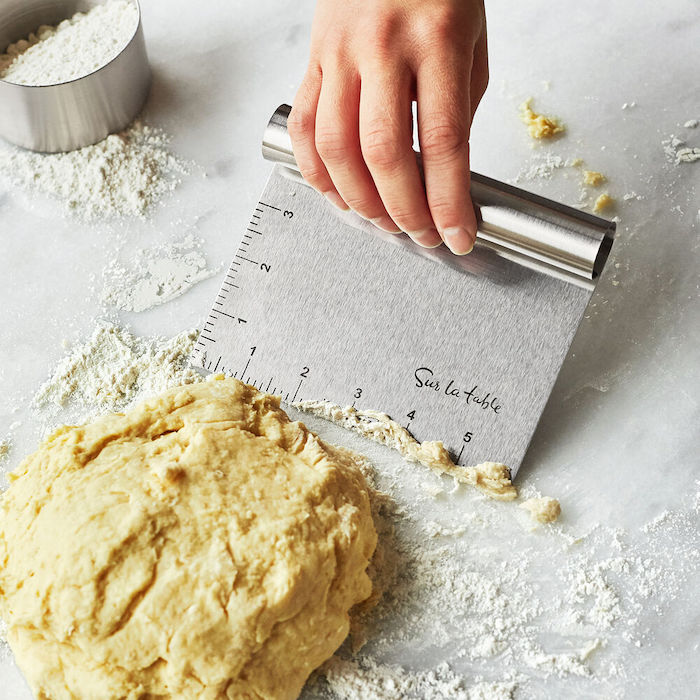
I could write sonnets about my love for bench scrapers. These multi-purpose tools are the unsung heroes of the baking world. At their most basic, bench scrapers make cleaning so much easier. They sweep all of the leftover flour and powdered sugar right off your counter into the trash easier than just about anything else. But they’re good for so much more than cleaning. Bench scrapers can divide dough, pick up and carry chopped ingredients, and even measure things. Once you have one, you’ll forget how you ever survived in the kitchen without one.
Measuring Spoons And Cups — $5
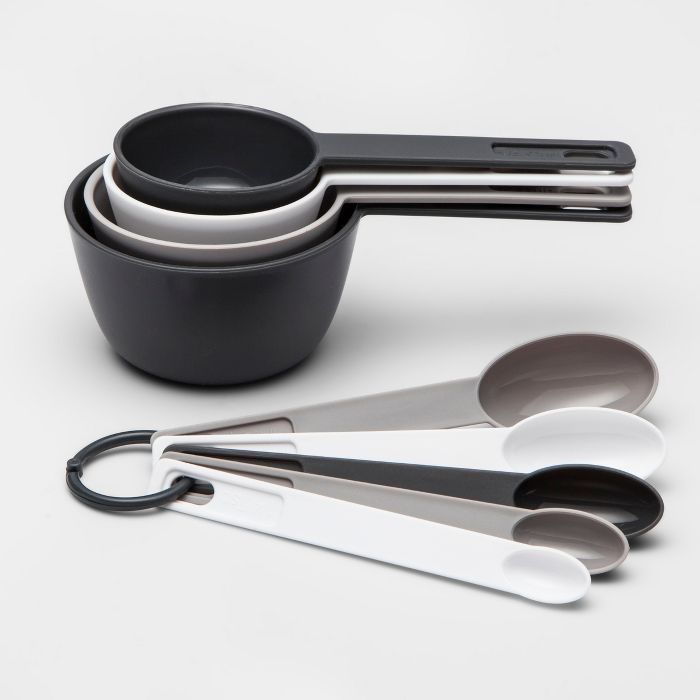
An old boss once told me that chefs are like dogs and pastry chefs are like cats because dogs are fun and chaotic and messy while cats are serious and precise. Now, this is a common stereotype in the culinary world that I do not necessarily endorse, but I can tell you exactly where it comes from: measuring spoons. I have never seen a chef grab a measuring spoon and add exactly ¼ teaspoon of salt to a dish. On the other hand, I’ve seen a chef use her fingers to grab a random pinch of salt loads of times. Cooking is fluid and requires you to taste as you go; the dish is supposed to change and evolve over the cooking process until everything is just right–flavor, temperature, texture, and appearance. A large portion of the baking process, however, is literally out of your hands. Once your cake goes into the oven, there’s only so much you can do from there. So being precise with your ingredients is key. When you can’t course-correct as easily later, you have to get things right on the first try. So when the recipe says to add ¾ teaspoons of baking powder, you need to make sure you do just that, and eyeballing the amount comes with a risk that you won’t be able to do anything about until it’s too late. Fortunately, measuring spoons and cups are some of the least expensive and most widely available kitchen tools out there, so there’s no reason not to use them.
Rimmed Baking Sheet — $12.99
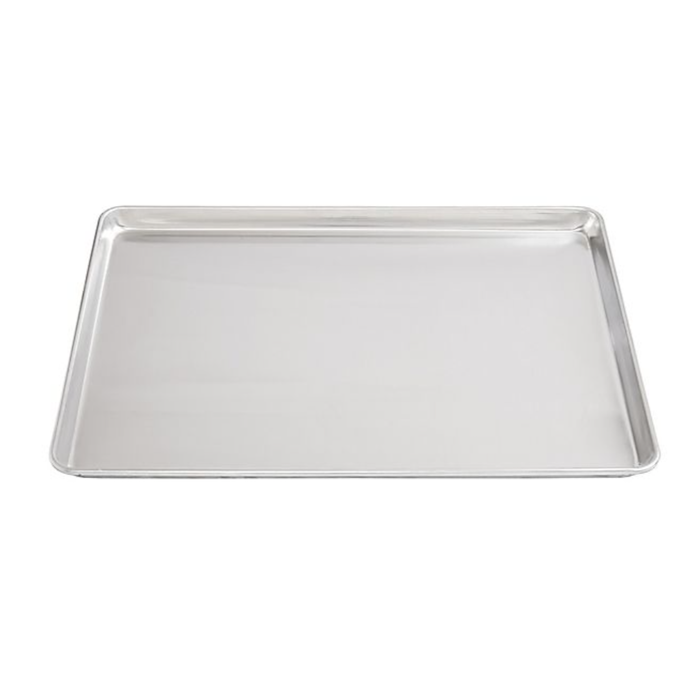
When it comes to buying a quality baking sheet, simple is better. Don’t be lured into thinking you need some new-fangled perforated baking sheet that looks like it was built by NASA. For an all-purpose baking sheet, there are only two requirements. First, it needs a rim that goes all the way around the sides. Some specialty kitchen stores carry pans that are only partially rimmed, but I advise new bakers to steer clear of these. As you are learning about how ingredients work together and trying new recipes, some of your experiments may go awry. A rimmed baking sheet saves you from a mess in the oven if butter leaks out of your dough or your cookies spread too far. Second, the baking sheet should be light in color. Light-colored metals absorb heat differently than dark-colored metals and tend to result in more even baking. That’s it! Stick to those two requirements and you’ll end up with something simple but effective.
***
Recently, a non-culinary friend of mine asked for a cake recipe I’d allowed her to sample. When I started to describe the steps, she shook her head dismissively and said, “I have to fold something? I could never do that. It’s too complicated.” I’ll say to you what I said to her: Yes, you can! Anyone can learn how to bake and having these basic starter tools is half the battle. Just like in life, baking is best when it’s simple and sweet.
Ellen Coatney is a pastry chef and entrepreneur in Madison, Wisconsin. Follow along with her baking adventures on Instagram.
Image via Unsplash

